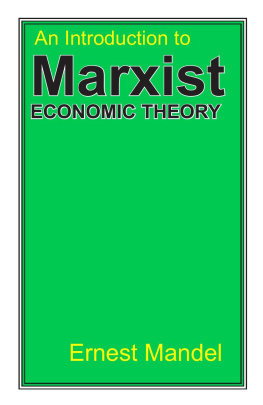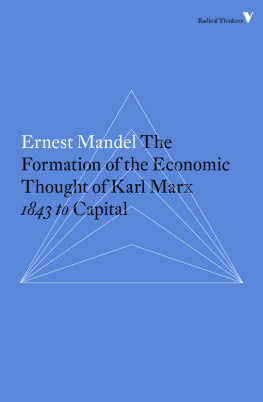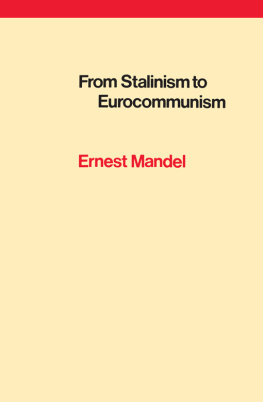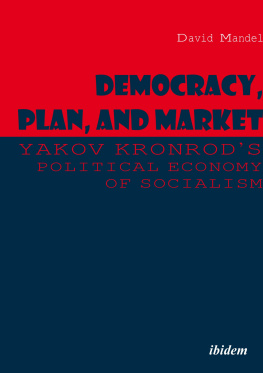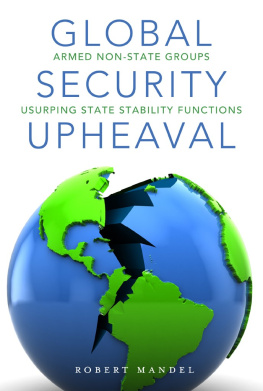I. The Theory of Value and Surplus Value
In the last analysis, every step forward in the history of civilization has been brought about by an increase in the productivity of labor. As long as a given group of men barely produced enough to keep itself alive, as long as there was no surplus over and above this necessary product, it was impossible for a division of labor to take place and for artisans, artists or scholars to make their appearance. Under these conditions, the technical prerequisites for such specialization could not possibly be attained.
Social Surplus Product
As long as the productivity of labor remains at a level where one man can only produce enough for his own subsistence, social division does not take place and any social differentiation within society is impossible. Under these conditions, all men are producers and they are all on the same economic level.
Every increase in the productivity of labor beyond this low point makes a small surplus possible, and once there is a surplus of products, once mans two hands can produce more than is needed for his own subsistence, then the conditions have been set for a struggle over how this surplus will be shared.
From this point on, the total output of a social group no longer consists solely of labor necessary for the subsistence of the producers. Some of this labor output may now be used to release a section of society from having to work for its own subsistence.
Whenever this situation arises, a section of society can become a ruling class, whose outstanding characteristic is its emancipation from the need of working for its own subsistence.
Thereafter, the labor of the producers can be divided into two parts. A part of this labor continues to be used for the subsistence of the producers themselves and we call this part necessary labor; the other part is used to maintain the ruling class and we give it the name surplus labor.
Let us illustrate this by the very clear example of plantation slavery, as it existed in certain regions and periods of the Roman Empire, or as we find it in the West Indies and the islands of Portuguese Africa starting with the seventeenth century, on the great plantations which were established there. In these tropical areas, even the slaves food was generally not provided by the master; the slave had to produce this himself by working a tiny plot of ground on Sundays and the products from this labor constituted his store of food. On six days of the week the slave worked on the plantation and received in return none of the products of his labor. This is the labor which creates a social surplus product, surrendered by the slave as soon as it is produced and belonging solely to the slavemaster.
The work week, which in this case is seven days, can be divided into two parts: the work of one day, Sunday, constitutes necessary labor, that labor which provides the products for the subsistence of the slave and his family; the work of the other six days is surplus labor and all of its products go to the master, are used for his sustenance and his enrichment as well.
The great domains of the early Middle Ages furnish us with another illustration. The land of these domains was divided into three parts: the communal lands consisting of forest, meadows, swamps, etc.; the land worked by the serf for his own and his familys subsistence; and finally, the land worked by the serf in order to maintain the feudal lord. The work week during this period was usually six days, not seven. It was divided into two equal parts: the serf worked three days on the land from which the yield belonged to him; the other three days he worked on the feudal lords land, without remuneration, supplying free labor to the ruling class.
The products of each of these two very different types of labor can be defined in different terms. When the producer is performing necessary labor, he is producing a necessary product. When he is performing surplus labor, he is producing a social surplus product.
Thus, social surplus product is that part of social production which is produced by the laboring class but appropriated by the ruling class, regardless of the form the social surplus product may assume, whether this be one of natural products, or commodities to be sold, or money.
Surplus value is simply the monetary form of the social surplus product. When the ruling class appropriates the part of societys production previously defined as surplus product exclusively in the monetary form, then we use the term surplus value instead of surplus product.
As we shall see later on, however, the above only constitutes a preliminary approach to the definition of surplus value.
How does social surplus product come into existence? It arises as a consequence of a gratuitous appropriation, that is, an appropriation without compensation, by a ruling class of a part of the production of a producing class. When the slave worked six days a week on a plantation and the total product of his labor was taken by the master without any compensation to the slave, the origin of the social surplus product here is in the gratuitous labor, the uncompensated labor, supplied by the slave to the master. When the serf worked three days a week on the lords land, the origin of this income, of this social surplus product, is also to be found in the uncompensated labor, the gratuitous labor, furnished by the serf.
We will see further on that the origin of capitalist surplus value, that is to say, the revenue of the bourgeois class in capitalist society, is exactly the same: it is uncompensated labor, gratuitous labor, which the proletarian, the wage worker, gives the capitalist without receiving any value in exchange.
Commodities, Use value and Exchange value
We have now developed several basic definitions which will be used throughout this exposition. A number of others must be added at this point.
Every product of human labor normally possesses utility; it must be able to satisfy a human need. We may therefore say that every product of human labor has a use value. The term use value will, however, be used in two different senses. We will speak of the use value of a commodity; we will also talk about use values, as when we refer, for example, to a society in which only use values are produced, that is to say, where products are created for direct consumption either by the producers themselves or by ruling classes which appropriate them.
Together with this use value, a product of human labor can also have another value, an exchange value. It may be produced for exchange on the market place, for the purpose of being sold, rather than for direct consumption by the producers or by wealthy classes. A mass of products which has been created for the purpose of being sold can no longer be considered as the production of simple use values; it is now a production of commodities.
The commodity, therefore, is a product created to be exchanged on the market, as opposed to one which has been made for direct consumption. Every commodity must have both a use value and an exchange value.
It must have a use value or else nobody would buy it, since a purchaser would be concerned with its ultimate consumption, with satisfying some want of his by this purchase. A commodity without a use value to anyone would consequently be unsaleable, would constitute useless production, would have no exchange value precisely because it had no use value.
On the other hand, every product which has use value does not necessarily have exchange value. It has an exchange value only to the extent that the society itself, in which the commodity is produced, is founded on exchange, is a society where exchange is common practice.

